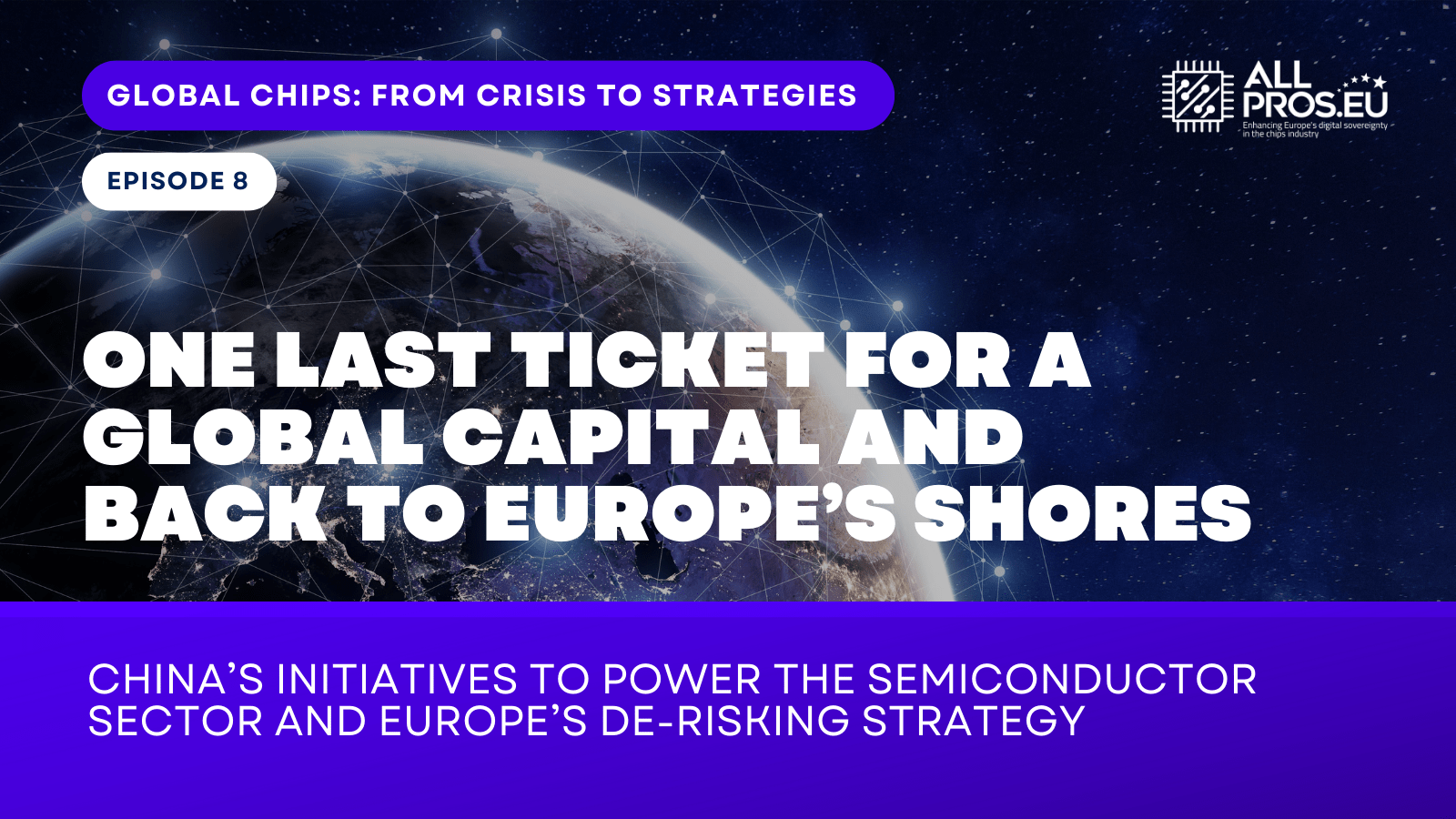
One last ticket for a global capital and back to Europe’s shores
Author: Matilde Castleberry
The semiconductor express will end its journey in the counterpart of the block that seems to be in creation, the player on the other side of what many call a new iron curtain, China. We’ll then go back to Brussels' institutional palaces to understand what’s coming next in our relationship with this strong competitor.
China
China has been forwarding industrial planning on semiconductors for the past 70 years, over the past decade it has released more than 100 development plans with a particular focus on the chips industry because of its critical importance. In 2005 China officially recognized the importance of semiconductors in a "National Medium-and-Long-term Science and Technology Development Plan outline’’ (MPL). The plan aimed at emphasising targeted acquisition of foreign technology and to shorten the gap between state and industry with the final goal of acquiring local innovations.
China’s policies have three main focuses: the creation of a strong internal demand for Chinese products, the gradual restriction of market access for competing foreign products, and the growth of domestic capacity notwithstanding the market. These goals are outlined in three main documents, one of which is the renowned ‘Made in China 2025’ announced in 2015 by President Xi Jinping. The document aims at transforming the Chinese manufacturing sectors into global industry leaders and particular attention was given to semiconductors due to their fundamental role in all technological fields.
A series of funds were established at the national and provincial levels to facilitate the establishment of home-grown R&D, the acquisition of foreign technology, and the cultivation of domestic ones. Attempting a Great Leap Forward, in 2020 China also released its 14th five-year plan intending to boost semiconductor production to obtain self-reliance. According to the South China Morning Post, China gave 190 chip firms €1.64 billion in subsidies in 2022. SMIC alone, which is China’s major chip maker, received €257 million.
What is Europe’s stance towards China?
Beijing was the last destination of our journey and we’re now ready to go back home to Brussels, attempting to analyse our standpoint towards this strong competitor.
According to President Ursula Von Der Lyen, Europe’s trade relationship with China is unbalanced and unsustainable due to the growing trade deficit of almost €400 billion. The reasons are traceable to the preferential treatment of Chinese domestic companies and the lack of market access for the European ones.
In her December 7th speech, on the occasion of her second 2023 visit to Beijing, President Von Der Lyen referred to the de-risking strategy already announced in March 2023. She made clear that de-risking refers to the real necessity of addressing dependencies by strengthening and diversifying supply chains, very different from the much discussed and feared de-coupling.
The standpoint towards China already had undeniable consequences for the entire market, including the technology industry and in particular the semiconductor industry. The de-risking strategy is mother to several other actions and strategies such as the economic security strategy announced this summer, the critical raw material act announced during President’s Von Der Leyen State of the Union speech in 2022, and the well-known European Chips Act. These initiatives, despite not being centred uniquely on China, sure have a firm eye on it.
Europe learned its lesson: as we discussed in episode 1, we cannot rely heavily and solely on a handful of countries, especially when the dependency is on materials or technologies considered critical and when the other country is declared ‘of concern’.
Europe’s drive towards a stronger semiconductor industry has begun and ALLPROS.eu will be supporting this journey on the side of policymakers, industry, and civil society. President Ursula Von Der Leyen stressed once again the importance of being united in her 2023 State of the Union speech and ALLPROS.eu is determined to contribute to this union, fostering engagement, collaboration, and complementarity among the players of the chips sector.
As our journey on board the semiconductor express comes to an end, so does the Global Chips Series. Thank you for joining us, hope you enjoyed uncovering together the mechanisms of this ever-evolving and crucial sector.
The EU-funded project ALLPROS.eu aims to strengthen the sector through concrete initiatives such as the marketplace where industries and products can be showcased and through the working groups and the observatory. Don't miss the upcoming events and join us in January for IDC’s webinar on the premises of ALLPROS.eu entitled ‘The state of the semiconductor market in Europe and the world’ - offering insights into the semiconductor value chain, market dynamics, and the powerful forces shaping the sector.